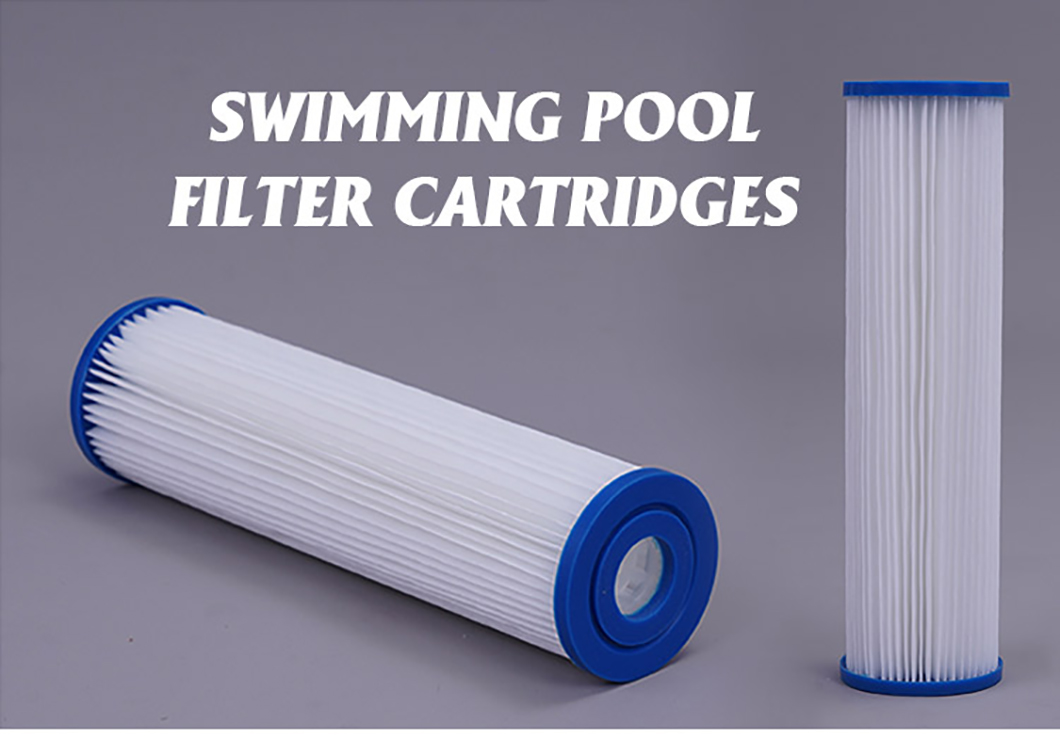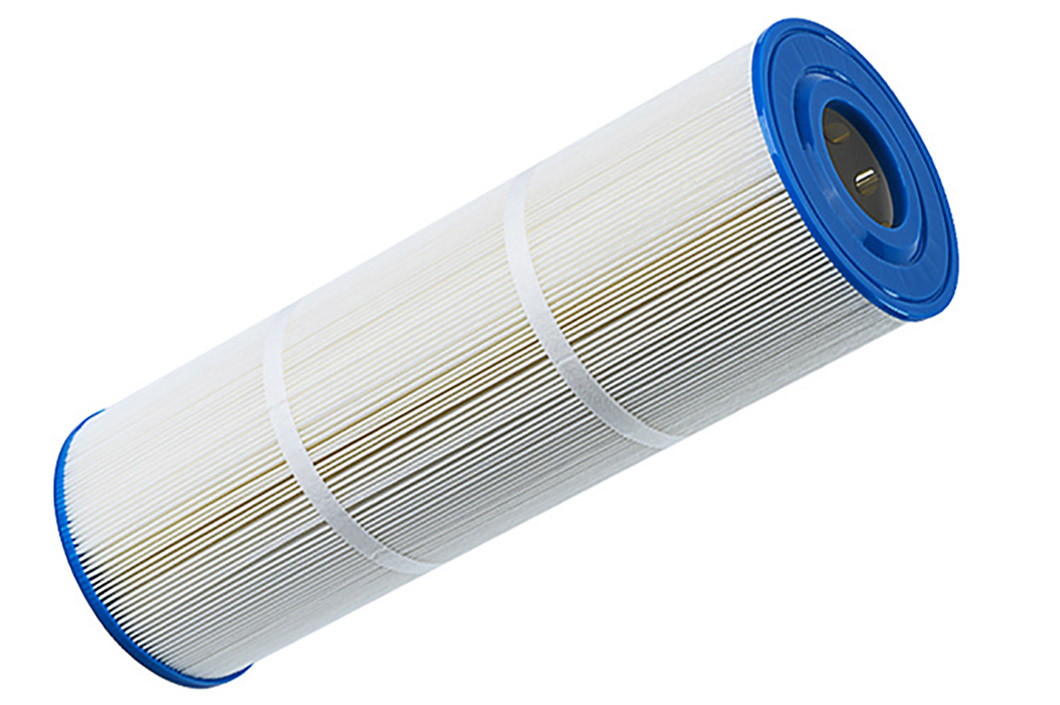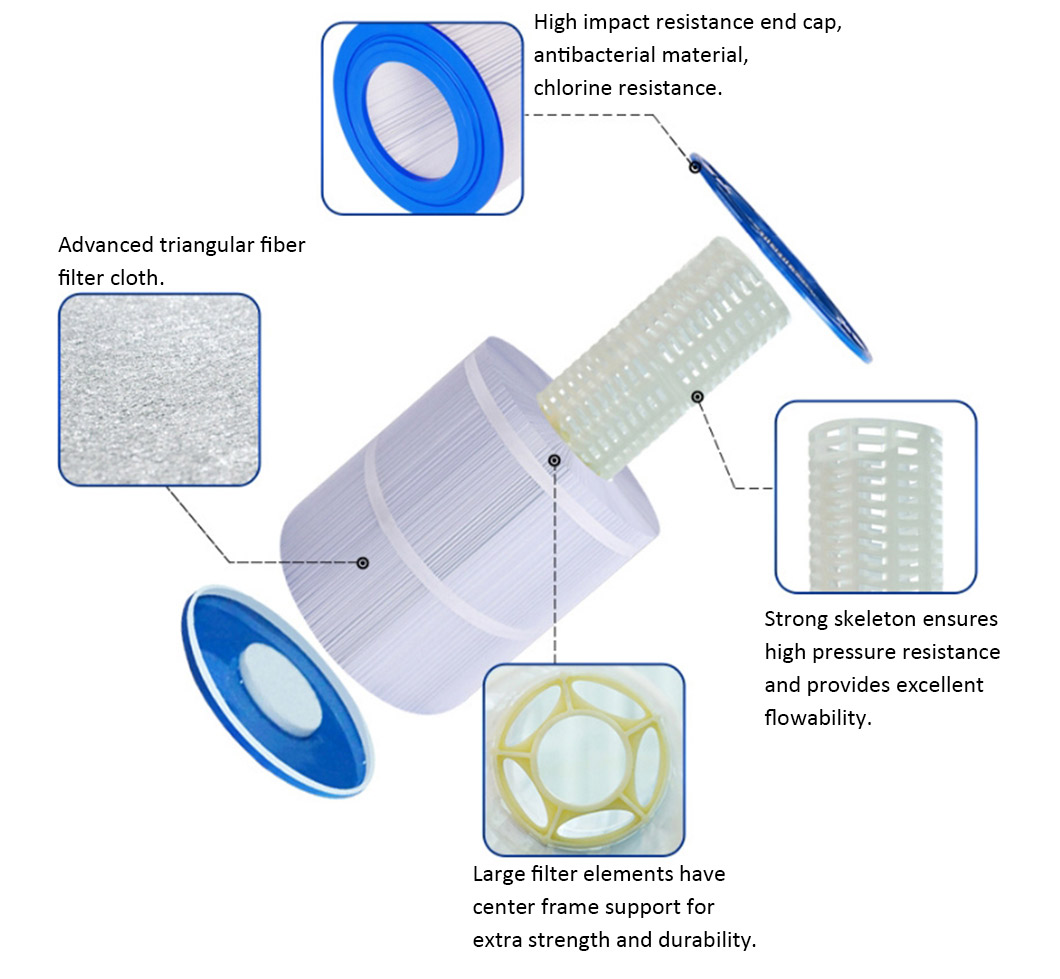Swimming pool filter cartridge

Introduction: Swimming pools are a popular feature in many households and recreational facilities. To ensure the water remains clean and safe for swimming, pool filters play a crucial role. This article aims to highlight the significance of pool filters and their impact on maintaining healthy swimming environments.
- Function of Pool Filters: Pool filters are responsible for removing impurities and debris from the water, ensuring it remains crystal clear. The filters work by trapping dirt, leaves, insects, and other contaminants that can accumulate in the pool. Without a proper filtration system, the water quality would deteriorate rapidly, posing health risks to swimmers.
- Types of Pool Filters: There are three main types of pool filters commonly used: sand filters, cartridge filters, and diatomaceous earth (DE) filters. Each type has its advantages and is suitable for different pool sizes and maintenance requirements. Sand filters are cost-effective and easy to maintain, while cartridge filters offer superior filtration and require less frequent cleaning. DE filters provide the highest level of filtration but require more maintenance.
- Regular Maintenance: To ensure the pool filters operate efficiently, regular maintenance is essential. This includes cleaning or replacing the filter cartridges, backwashing sand filters, and recharging DE filters. Neglecting filter maintenance can result in reduced filtration capacity, increased energy consumption, and compromised water quality. Regular maintenance not only extends the lifespan of the filters but also ensures a safe and enjoyable swimming experience.
- Benefits of Proper Filtration: Proper filtration offers numerous benefits, including:
a. Water Clarity: Clean and clear water enhances the overall aesthetic appeal of the pool, creating an inviting environment for swimmers.
b. Health and Safety: Effective filtration removes harmful bacteria, viruses, and other pathogens from the water, reducing the risk of waterborne illnesses and infections.
c. Chemical Balance: A well-functioning filtration system helps maintain the chemical balance of the pool water. This reduces the need for excessive chemical treatments, saving both time and money.
d. Equipment Longevity: By removing debris and contaminants, pool filters prevent clogging and damage to other pool equipment, such as pumps and heaters. This extends the lifespan of the entire pool system.
Conclusion: Pool filters are an integral part of maintaining a clean and healthy swimming environment. Regular maintenance and proper filtration ensure the water remains clear, safe, and enjoyable for swimmers. By investing in quality pool filters and adhering to maintenance routines, pool owners can create a refreshing oasis for themselves and their guests.


